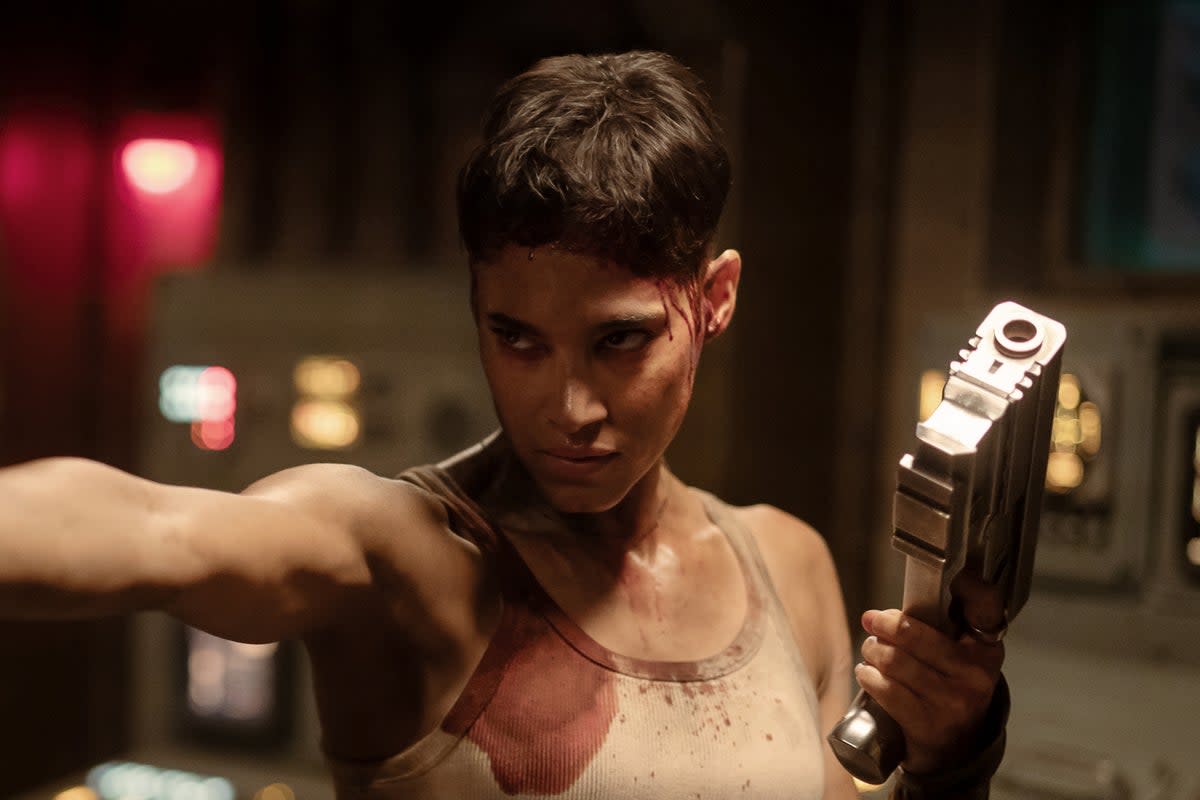Rebel Moon – Part Two: The Scargiver review: Zack Snyder’s Seven Samurai in space is too long and too repetitive
We’ve been duped by Zack Snyder’s Rebel Moon. Split into two parts, the sci-fi epic promised a certain amount of narrative heft – only to then reveal that it’s nothing more than an entry-level riff on Seven Samurai. Of course, the foundational framework of Akira Kurosawa’s landmark film, that of the disparate band of warriors who unite to defend a settlement, is one of the most commonly reiterated stories you’ll find in modern cinema. But it’s a starting point, not an end one.
Seven Samurai is a famously patient film, some 207 minutes long. John Sturges’s remake The Magnificent Seven is a sprightly two hours. Rebel Moon somehow stretches to four, with the dormant threat of even more. (Snyder plans to release extended, R-rated cuts later this year.) The film is egregiously long for what it is: simply Seven Samurai dipped in a thin glaze of rebels-vs-empire interstellar intrigue.
The events of Part One are handily summarised at the start of Part Two: The Scargiver by Anthony Hopkins, who voices the reformed imperial robot Jimmy. He’s eat-pray-loved his way across the humble farming outcrop of Veldt, and now wears a Coachella antler crown and spends his time hanging around in fields.
A crew is now assembled, brought back to Veldt by local farmer Gunnar (Michiel Huisman, suitably dashing) and Kora (the indomitable Sofia Boutella, showing she deserves more action leads like this), a former Imperium soldier with a dirty secret. Who exactly are their not-quite samurai? We have general-turned-gladiator Titus, who is no Maximus Decimus Meridius (but is played by Gladiator star Djimon Hounsou, thankfully given more to do here). Nemesis (Bae Doona) has cool cybernetic arms and laser swords, but no sense of identity beyond that of a mother to murdered children. Tarak (Staz Nair), a lost prince from a Fantastic Beasts-esque fantasy planet, was established as a friend to animals, but, bafflingly, does not make a single animal friend here. Milius (Elise Duffy), meanwhile, is your standard earnest rebel soldier type.
At the start of the film, everyone thinks they’ve defeated the bad guy, Atticus Noble (Ed Skrein, attacking his consonants like any committed villain should). They haven’t – as we learned at the end of Part One. Atticus is very much alive and coming back with his big spaceship.
The rest of the plot goes exactly like this: slow-motion wheat harvesting montage; slow-motion training montage; group therapy session in which everybody revisits their trauma in slow-motion flashbacks. Finally, we get a battle sequence – with lots of slow motion, of course.
Part Two’s climactic skirmish is planned like a video game: wave upon wave of increasingly complicated enemies, with slight breathers in between for everyone to recharge. It starts to feel a little cyclical. One character doing a superhero landing is fine. Two in quick succession and it’s no longer special – you just assume everyone’s muscle memory in this universe has them leaping around fist first.

The Scargiver is at least basic enough to feel relatively inoffensive; the first film’s uncomfortably vague deployment of racist and sexual violence has been reduced to a single reference to the empire’s hatred of “ethnic impurity” (never to be picked up again). There’s a heck of a lot of religious imagery – including an ironically Christ-like resurrection for Noble and a troupe of evil cardinals – that never actually impacts a single plot point or theme. Of course, Snyder may argue that this is all covered in some spin-off book, comic, or video game. Or maybe in the six-hour cut. But what fun is a film that tries to force you to consume more content? That’s not art. That’s blackmail.
Dir: Zack Snyder. Starring: Sofia Boutella, Djimon Hounsou, Ed Skrein, Michiel Huisman, Doona Bae, Ray Fisher, Staz Nair, Fra Fee, Elise Duffy, Anthony Hopkins. 12, 122 minutes.
